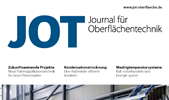TThe coating process is one of the most energy-intensive process steps in industrial automotive manufacturing. Volatile organic compounds (VOCs), energy consumption and CO2 balance play a major role. A recent comprehensive analysis performed by BASF and Dürr used a holistic perspective to examine the eco-efficiency of painting lines and coating technology. The eco-efficiency analysis developed by BASF looks at environmental impact in proportion to the cost-effectiveness of products and processes. Its aim is to help customers to decide which products and processes are the best choice, both ecologically and economically. To this end, the entire life cycle of a product or process is examined, from raw materials sourcing to product manufacture and use, as well as disposal. The most important results of the current study refer to coating processes with primers, shortened coating processes and the use of state-of-the-art painting line and application technologies. In processes with primers, BASF and Dürr studied the most important versions of solvent-borne and waterborne paint systems used in industry. The study found that that waterborne processes generally had good results overall in the evaluation of their eco-efficiency. A comparison of the eco-efficiency of conventional filler processes with that of integrated processes showed a clear advantage in favour of integrated processes. Significant potential for savings is yielded with respect to the energy consumption of the spray booths if they are operated with recirculating air. The study not only provides concrete figures. The comparability of the figures also allows realistic assumptions to be made on consumption, emissions and costs.
Autor(en): Ke




